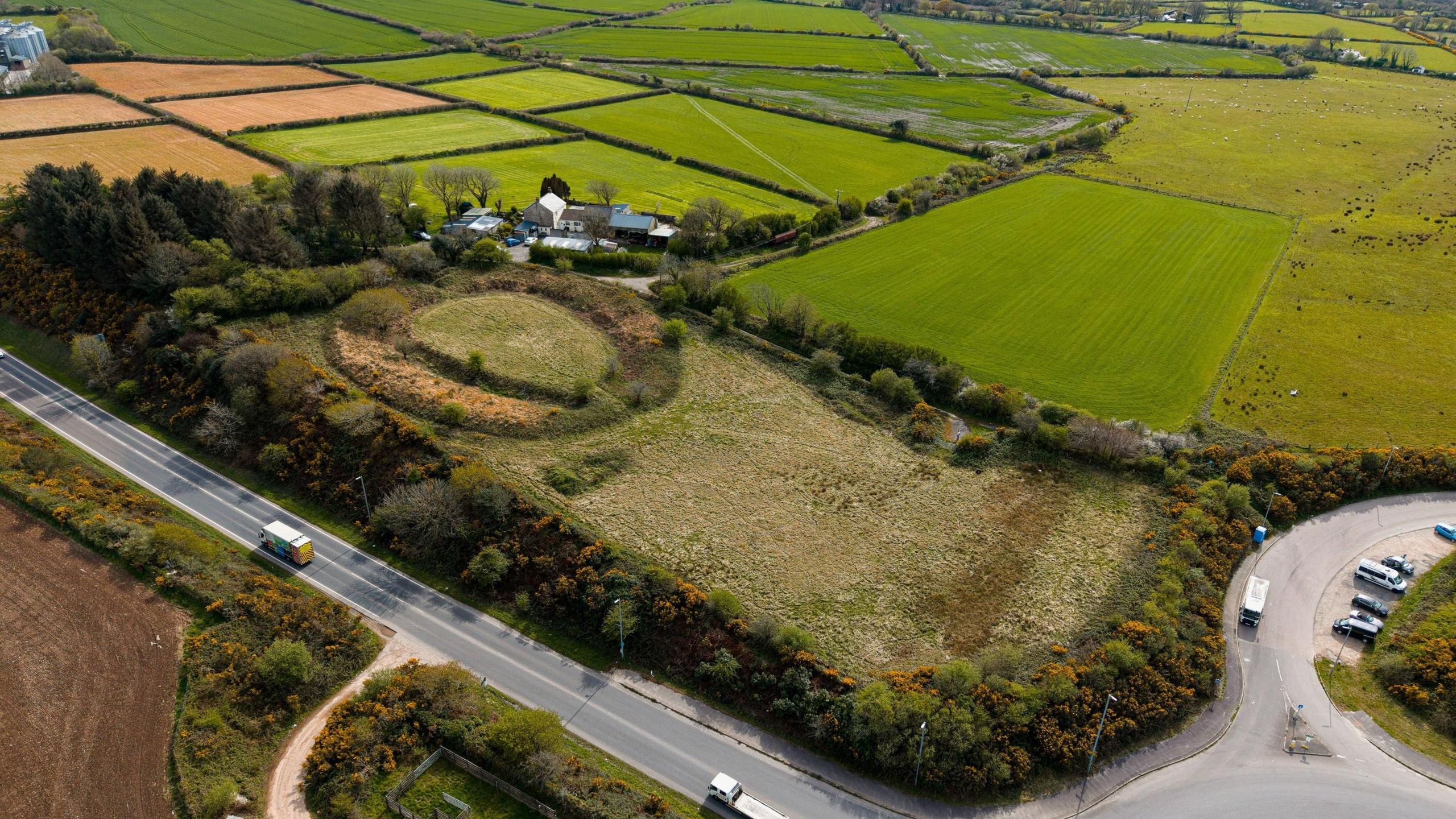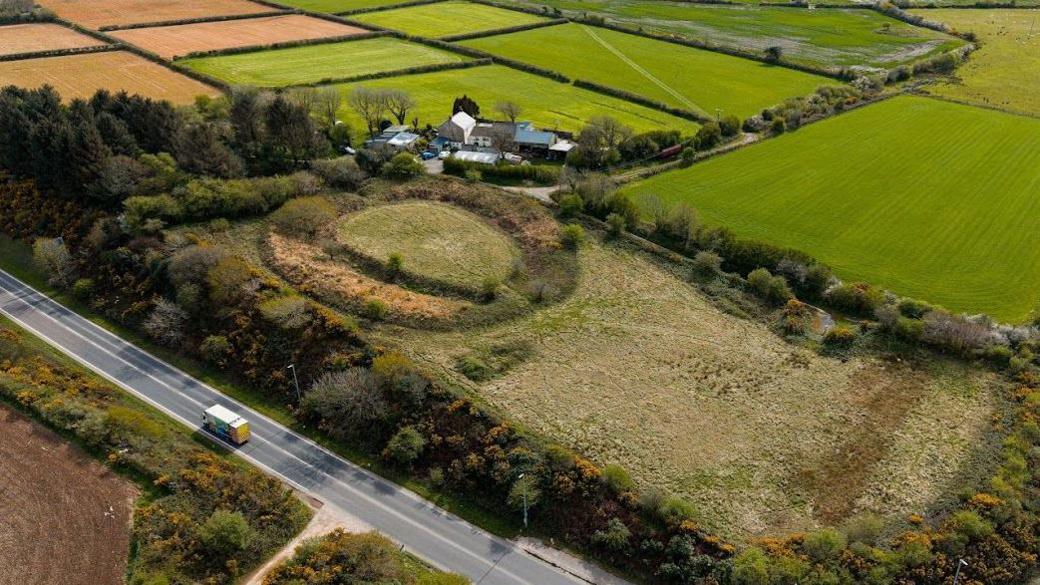Charity appeal to save prehistoric ritual site

The heritage trust says it hopes to raise £50,000 towards acquiring Castilly Henge
- Published
Cornwall Heritage Trust has launched a fundraising appeal to rescue and secure the future of a "unique prehistoric ritual site".
The charity said it hoped to raise £50,000 towards the acquisition of Castilly Henge, just off the A30 near Bodmin.
Castilly Henge is a substantial oval earthwork, with an external bank and internal ditch, which the trust said would have formed an amphitheatre-like settings for gatherings and ritual activities.
The trust said the scheduled monument, described as "Cornwall's ancient sacred heart", was currently at risk due to the threat posed by "invasive vegetation".
It said modern development of the nearby road infrastructure and local service network, which lie within meters of the site, also posed potential risks.
The charity also said the henge was currently inaccessible to the public.
Trust CEO Cathy Woolcock said: "The henge has been at risk for some time – a threat which urgently needs to be addressed before this special place and the secrets it holds are potentially lost."
She said the charity had been protecting historic landscapes and monuments across Cornwall for the last 40 years.
"We have a strong track record of giving these special places the archaeological and land management expertise they need and have helped save a number from the Heritage at Risk Register," she said.
"We hope to be able to do the same for Castilly Henge."
The trust said recent surveys undertaken by Historic England's Archaeological Investigation Team discovered traces of a now-removed possible stone circle in the middle of the henge.
"Not all henges contain stone circles, and there is only one other known to survive in Cornwall," it added.
"A four-week archaeological excavation is set to take place at the monument in September and October 2025 to target important questions about these findings to understand more about the monument's character, date and potential later reuse."
Follow BBC Cornwall on X, external, Facebook, external and Instagram, external. Send your story ideas to spotlight@bbc.co.uk, external.
Related topics
- Published13 June
